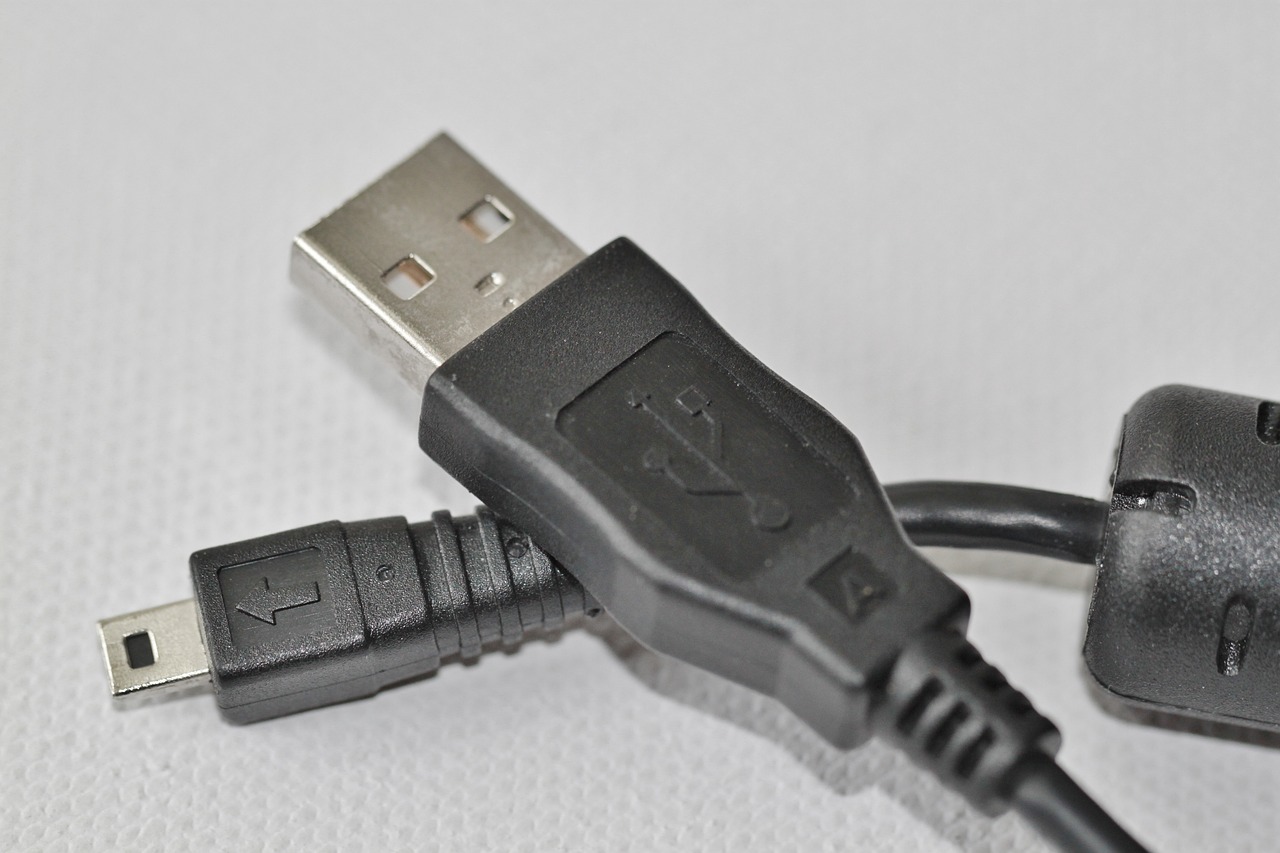How to Use Data-Driven Insights for Better Time Management
Are you constantly struggling to manage your time effectively and find yourself overwhelmed with tasks? In today's fast-paced world, mastering the art of time management is crucial for success. But what if there was a way to supercharge your time management skills using data-driven insights?
By harnessing the power of data-driven insights, you can unlock a treasure trove of valuable information that can revolutionize the way you approach time management. Gone are the days of relying on guesswork and intuition to plan your day; with data at your fingertips, you can make informed decisions that are backed by concrete evidence.
Imagine having a detailed analysis of how you spend your time, where your productivity peaks and dips, and which tasks are eating up valuable minutes of your day. Armed with this knowledge, you can tailor your time management strategies to eliminate inefficiencies and maximize productivity.
But how exactly can you leverage data-driven insights to take your time management skills to the next level? In this article, we will delve into the world of data-driven time management, exploring the benefits, strategies, and tools that can help you reclaim control of your schedule and supercharge your productivity.

Understanding Data-Driven Insights
This article explores the benefits of leveraging data-driven insights to enhance time management skills, offering practical tips and strategies for individuals to optimize their productivity and efficiency through data analysis.
When it comes to data-driven insights, it's all about harnessing the power of information to gain a deeper understanding of how you spend your time. By analyzing data related to your activities, tasks, and habits, you can uncover valuable insights that can help you make more informed decisions about how to manage your time effectively.

Collecting and Analyzing Relevant Data
When it comes to improving time management skills, collecting and analyzing relevant data plays a crucial role in understanding our habits and behaviors. By tracking and evaluating data related to how we spend our time, we can gain valuable insights that can lead to more efficient and productive use of our resources.
One effective method for collecting relevant data is to maintain a detailed log of daily activities. This can include tasks completed, time spent on each activity, and any distractions or interruptions that occurred. By keeping a record of our daily routines, we can identify patterns and trends that may be impacting our time management.
Additionally, leveraging technology can streamline the data collection process. Utilizing time tracking apps or software can automatically record how time is allocated throughout the day, providing a comprehensive overview of our time usage. These tools can generate reports and visualizations that make it easier to analyze and interpret the data.
Once data is collected, the next step is to analyze it effectively. This involves reviewing the gathered information to identify areas of improvement or inefficiencies in our time management practices. By looking for trends or recurring issues in the data, we can pinpoint where adjustments need to be made to optimize our productivity.
Furthermore, conducting a thorough analysis of the data can help us prioritize tasks, allocate time more effectively, and eliminate time-wasting activities. By understanding how we currently utilize our time, we can make informed decisions on how to better structure our days for maximum efficiency.

Identifying Time Management Challenges
When it comes to managing time effectively, individuals often encounter various challenges that can hinder their productivity and efficiency. One common time management challenge is procrastination, where individuals delay important tasks, leading to a backlog of work and increased stress. Another challenge is poor task prioritization, where individuals struggle to identify and focus on the most critical tasks, resulting in time wasted on less important activities. Additionally, interruptions and distractions can disrupt workflow and concentration, making it difficult to stay on track and complete tasks efficiently.
Moreover, inefficient planning and time estimation can lead to unrealistic expectations and overcommitment, causing individuals to feel overwhelmed and unable to meet deadlines. Multi-tasking is another challenge that many individuals face, thinking they can juggle multiple tasks simultaneously, but in reality, it often leads to decreased productivity and quality of work. Lastly, lack of delegation can be a significant time management challenge, as individuals may struggle to distribute tasks effectively among team members or colleagues, resulting in an unnecessary burden on themselves.
By identifying these common time management challenges, individuals can better understand their areas of weakness and take proactive steps to address them. Through data-driven insights, individuals can pinpoint specific areas for improvement and implement tailored strategies to overcome these challenges effectively.

Setting SMART Goals Based on Insights
Setting SMART goals based on insights is a crucial step in optimizing time management strategies. By utilizing data-driven insights, individuals can establish Specific, Measurable, Achievable, Relevant, and Time-bound goals that are tailored to their unique circumstances and objectives. These goals serve as a roadmap for guiding daily activities and prioritizing tasks effectively.
When setting SMART goals, it's essential to first analyze the data collected to identify patterns, trends, and areas for improvement. By understanding how time is currently being utilized and where inefficiencies lie, individuals can create targeted objectives that address specific challenges and opportunities for enhancement.
Moreover, SMART goals provide a clear framework for tracking progress and measuring success. With concrete criteria for achievement in place, individuals can assess their performance against predetermined benchmarks and adjust their strategies as needed to stay on course towards their overarching objectives.
By incorporating data-driven insights into the goal-setting process, individuals can align their aspirations with actionable steps that are informed by empirical evidence. This approach not only increases the likelihood of success but also fosters a sense of accountability and motivation, driving continuous improvement in time management practices.

Implementing Data-Driven Tools and Technologies
Implementing data-driven tools and technologies can revolutionize the way individuals manage their time and boost their overall productivity. By harnessing the power of advanced software and applications, it becomes possible to track and analyze time-related data with precision and efficiency. These tools offer a comprehensive overview of how time is spent, allowing users to identify patterns, bottlenecks, and areas for improvement.
One of the key advantages of implementing data-driven tools is the ability to automate time tracking processes, reducing manual effort and ensuring accurate data collection. By integrating these technologies into daily routines, individuals can seamlessly capture data on their activities, tasks, and time allocation without the need for constant manual input.
Furthermore, data-driven tools provide real-time insights into time management practices, offering instant feedback and analysis to guide decision-making. With features such as customizable dashboards, visualizations, and reports, users can gain a deeper understanding of their time usage and make informed adjustments to optimize their schedules.
These tools also enable collaboration and synchronization across multiple devices, ensuring seamless integration into various aspects of daily life. Whether it's tracking work hours, managing projects, or scheduling appointments, data-driven technologies offer a unified platform for organizing and prioritizing tasks efficiently.
By leveraging data-driven tools and technologies, individuals can unlock new possibilities for enhancing their time management skills and achieving peak performance. With the right tools at their disposal, users can streamline workflows, eliminate time wastage, and focus on tasks that truly matter, leading to increased productivity and overall satisfaction.

Creating Personalized Time Management Strategies
Creating personalized time management strategies is crucial for optimizing productivity and efficiency in your daily life. By tailoring your approach to time management based on data-driven insights, you can align your routines with your unique preferences, priorities, and goals.
One effective way to personalize your time management strategy is to analyze the data collected on your daily habits and activities. By identifying patterns and trends in how you spend your time, you can determine which tasks are consuming the most time and adjust your schedule accordingly.
Moreover, setting specific goals that are meaningful to you can help structure your time management approach. Utilizing the SMART criteria (Specific, Measurable, Achievable, Relevant, Time-bound) can guide you in creating objectives that are clear, attainable, and aligned with your long-term aspirations.
It is also essential to take into account your individual energy levels and peak performance times when planning your day. By scheduling tasks that require high concentration during your most productive hours, you can maximize your efficiency and tackle challenging projects effectively.
Additionally, incorporating self-care activities and breaks into your schedule is vital for maintaining a healthy work-life balance. Prioritizing time for relaxation and rejuvenation can prevent burnout and enhance your overall well-being, ultimately boosting your productivity in the long run.
Remember, personalizing your time management strategies is an ongoing process that requires continuous evaluation and adjustment. By staying attuned to your data-driven insights and refining your approach as needed, you can cultivate a more efficient and fulfilling lifestyle.

Monitoring Progress and Making Adjustments
When it comes to effective time management, monitoring your progress and making necessary adjustments play a crucial role in ensuring productivity and efficiency. By regularly tracking your activities and evaluating the outcomes, you can gain valuable insights into what works well and what needs improvement.
One way to monitor progress is to keep a detailed log of your daily tasks and time spent on each activity. This can help you identify patterns, time-wasting habits, and areas where you can optimize your workflow. By analyzing this data, you can pinpoint inefficiencies and take proactive steps to address them.
Additionally, setting milestones and checkpoints along the way can help you gauge your progress towards achieving your goals. By breaking down larger objectives into smaller, manageable tasks, you can track your advancement and make necessary adjustments to stay on course.
Moreover, it's essential to regularly review your time management strategies and assess their effectiveness. Are you meeting deadlines? Are you allocating time efficiently to different tasks? By asking yourself these questions and analyzing the data, you can fine-tune your approach and make adjustments as needed.
Utilizing data-driven tools and technologies can also aid in monitoring progress and making informed decisions. From time tracking apps to productivity software, these tools can provide real-time insights into your workflow, highlighting areas for improvement and helping you stay on track with your goals.
In conclusion, monitoring progress and making adjustments based on data-driven insights are key components of effective time management. By staying attentive to your performance, embracing feedback, and being willing to adapt, you can optimize your productivity and achieve your objectives more efficiently.

Maximizing Productivity and Efficiency
When it comes to maximizing productivity and efficiency, leveraging data-driven insights can truly revolutionize the way you manage your time. By analyzing data related to your daily tasks, habits, and overall time usage patterns, you can uncover valuable insights that can significantly boost your efficiency levels.
One effective strategy for maximizing productivity is to identify time-consuming tasks that may not align with your priorities or goals. By using data-driven insights, you can pinpoint areas where you are spending excessive time and make informed decisions on how to reallocate your resources more effectively.
Moreover, data-driven tools and technologies can play a crucial role in enhancing your productivity. By utilizing time-tracking apps, project management software, or other data-driven tools, you can gain a deeper understanding of how you allocate your time and identify opportunities for improvement.
Creating a structured routine based on data-driven insights can also significantly impact your productivity levels. By analyzing when you are most productive during the day and scheduling your most important tasks during those peak hours, you can optimize your workflow and accomplish more in less time.
Additionally, setting specific goals backed by data-driven insights can keep you focused and motivated. By breaking down larger tasks into smaller, achievable milestones and tracking your progress through data analysis, you can stay on track and maintain a high level of productivity.
Regularly reviewing and adjusting your time management strategies based on data-driven insights is essential for long-term success. By monitoring your progress, identifying areas for improvement, and making necessary adjustments, you can continuously refine your approach and maximize your efficiency levels.
In conclusion, by harnessing the power of data-driven insights, you can unlock your full potential and achieve unprecedented levels of productivity and efficiency in your daily tasks and responsibilities.
Frequently Asked Questions
- What are data-driven insights?
Data-driven insights refer to valuable information obtained through the analysis of data, which can help individuals make informed decisions and improve their time management practices.
- How can data-driven insights enhance time management skills?
Data-driven insights can enhance time management skills by providing insights into daily habits, routines, and time usage patterns, allowing individuals to identify areas for improvement and optimize their productivity and efficiency.
- Why is setting SMART goals important based on insights?
Setting Specific, Measurable, Achievable, Relevant, and Time-bound (SMART) goals based on data-driven insights is crucial for enhancing time management strategies as it ensures clear objectives and measurable outcomes.
- What tools and technologies can assist in implementing data-driven insights?
Various data-driven tools and technologies can assist in tracking and analyzing time-related data, helping individuals improve efficiency and productivity by providing valuable insights for optimization.
- How can personalized time management strategies be created using data-driven insights?
Personalized time management strategies can be created by leveraging data-driven insights to tailor approaches based on individual preferences, priorities, and goals, optimizing time usage for maximum effectiveness.

















